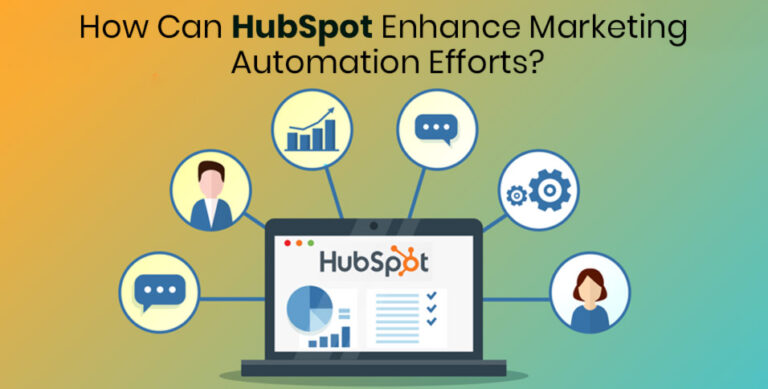In today’s fast-paced logistics and transportation industry, businesses are under constant pressure to optimize operations, reduce costs, and improve service quality. The global fleet management market is expected to grow from $19.47 billion in 2021 to $52.50 billion by 2027, at a compound annual growth rate (CAGR) of 17.5%, driven by advancements in technologies such as artificial intelligence (AI), telematics, and cloud computing. Additionally, AI adoption in fleet management has seen a 15% year-over-year increase, with companies reporting a significant reduction in fuel consumption, accidents, and maintenance costs.
Fleet management plays a crucial role in ensuring that transportation is smooth, efficient, and cost-effective. The emergence of AI in fleet management software has revolutionized the way companies monitor, manage, and control their vehicle fleets. AI-powered fleet management software provides real-time data analysis, predictive insights, automation, and enhanced decision-making capabilities.
In this blog, we will explore the role of AI in fleet management software, discuss its benefits, and highlight how fleet management software development is transforming the logistics industry.
Understanding Fleet Management Software
Fleet management software is a centralized platform designed to help businesses oversee their entire fleet of vehicles. From tracking vehicle locations to monitoring fuel consumption and maintenance schedules, this software ensures efficient operations. Traditionally, fleet management relied on manual data entry, GPS tracking, and basic reporting systems. However, with AI integration, fleet management has evolved into a sophisticated system capable of predictive analysis, automation, and real-time optimization.
Fleet management software development has become essential for industries that depend on transportation and logistics, such as retail, e-commerce, construction, and public transportation. AI is now at the forefront of transforming this industry by improving efficiency, reducing operational costs, and enhancing customer satisfaction.
How AI Enhances Fleet Management Software
AI plays a pivotal role in fleet management software, improving its ability to gather, analyze, and act on vast amounts of data in real-time. Below are some key ways AI enhances fleet management:
1. Predictive Maintenance
One of the most significant contributions of AI to fleet management software is predictive maintenance. AI-powered algorithms can monitor vehicle health by analyzing data such as engine temperature, oil levels, tire pressure, and mileage. Based on this data, the software predicts when a vehicle is likely to require maintenance or repairs. This ensures that fleet operators can address potential issues before they result in costly breakdowns, reducing vehicle downtime and improving overall efficiency.
For instance, AI can detect anomalies in engine performance and alert the operator to schedule maintenance, preventing more severe mechanical failures. Predictive maintenance is particularly beneficial in industries where fleet reliability is paramount, such as delivery services and public transportation.
2. Optimized Routing and Dispatching
AI-driven fleet management software excels in optimizing routing and dispatching, which are critical aspects of fleet operations. By analyzing traffic patterns, road conditions, weather forecasts, and delivery schedules, AI can recommend the most efficient routes for drivers. This reduces fuel consumption, minimizes travel time, and ensures timely deliveries.
Moreover, AI-powered dispatching systems can allocate resources more effectively by matching available vehicles with the nearest and most appropriate tasks. This reduces empty miles (distance traveled without cargo) and maximizes vehicle utilization.
3. Fuel Consumption Optimization
Fuel costs are a major expense for fleet operators. AI-enabled fleet management software can help reduce fuel consumption by analyzing driving behavior, route selection, and vehicle idling times. By monitoring driver habits such as harsh braking, rapid acceleration, and excessive idling, AI can provide feedback and recommendations for improving fuel efficiency.
For example, the software can suggest smoother driving practices, identify alternative fuel-efficient routes, or alert drivers when idling exceeds acceptable limits. This proactive approach to fuel management not only lowers operational costs but also contributes to environmental sustainability by reducing the fleet’s carbon footprint.
4. Driver Behavior and Safety Monitoring
AI in fleet management software offers real-time monitoring of driver behavior, which is crucial for ensuring safety and compliance with regulations. By analyzing data from telematics devices, AI can detect unsafe driving practices such as speeding, harsh braking, distracted driving, and fatigue.
Fleet operators can use this data to provide targeted training for drivers and implement safety measures to reduce accidents. Additionally, AI systems can issue real-time alerts to drivers when they exhibit risky behavior, allowing them to correct their actions immediately. This not only enhances driver safety but also reduces the risk of accidents, legal liabilities, and insurance costs.
5. Predictive Analytics for Fleet Operations
AI-powered fleet management software excels in predictive analytics, which allows fleet operators to make informed decisions based on data trends and patterns. Predictive analytics can forecast demand, optimize vehicle scheduling, and anticipate maintenance needs. By predicting when vehicles will require service or when demand for transportation will peak, fleet managers can plan operations more efficiently and avoid costly disruptions.
For instance, AI can analyze historical data to predict which routes are likely to experience heavy traffic during certain times of the day or year. Fleet operators can then adjust schedules and routes accordingly to avoid delays and ensure timely deliveries.
6. Automation of Routine Tasks
AI automates many routine tasks in fleet management, freeing up time for fleet managers to focus on strategic decisions. Tasks such as vehicle tracking, report generation, and compliance monitoring can be automated with AI-driven software. This reduces administrative overhead and ensures that operations run smoothly without constant manual intervention.
Automation also improves accuracy by eliminating human error, which is especially important in tasks such as data entry and compliance reporting. For example, AI can automatically generate reports on vehicle mileage, fuel consumption, and driver performance, ensuring that fleet managers have accurate and up-to-date information at their fingertips.
Benefits of AI-Enabled Fleet Management Software
The integration of AI into fleet management software brings a wide range of benefits for businesses, including:
- Increased Efficiency: AI-driven fleet management software optimizes operations by automating routine tasks, improving route planning, and reducing vehicle downtime. This leads to more efficient use of resources and reduced operational costs.
- Cost Savings: AI helps lower fuel consumption, maintenance costs, and insurance premiums by improving driving behavior, predicting maintenance needs, and reducing accidents.
- Enhanced Safety: AI’s ability to monitor driver behavior and provide real-time alerts reduces the risk of accidents and ensures compliance with safety regulations.
- Improved Decision-Making: AI-powered predictive analytics provide fleet managers with actionable insights, allowing them to make data-driven decisions that improve overall fleet performance.
- Scalability: AI-enabled fleet management software can scale to accommodate growing fleets, making it suitable for businesses of all sizes.
Fleet Management Software Development
Developing AI-powered fleet management software requires expertise in various technologies, including AI algorithms, machine learning, telematics, and GPS tracking. Businesses looking to implement AI in their fleet management systems should seek out fleet management software development companies with experience in AI integration. These companies can help design customized solutions that meet the specific needs of the business, ensuring seamless integration with existing systems.
Partnering with a software development consulting services provider can also offer valuable insights and recommendations on how to leverage AI to optimize fleet operations. By working with experts, businesses can explore software development ideas tailored to their unique fleet management requirements.
Future Trends in AI and Fleet Management
The future of AI in fleet management looks promising, with emerging technologies such as autonomous vehicles, advanced telematics, and AI-powered drones expected to revolutionize the industry. As AI continues to evolve, fleet management software will become even more sophisticated, offering deeper insights, greater automation, and improved safety measures.
For example, the development of autonomous vehicles will likely reduce the need for human drivers, further optimizing fleet operations and reducing labor costs. Additionally, AI-powered drones could be used for aerial fleet monitoring, providing real-time data on vehicle locations, traffic conditions, and road hazards.
Conclusion
AI is transforming fleet management software by providing real-time insights, automating routine tasks, and optimizing operations. From predictive maintenance to driver behavior monitoring and route optimization, AI plays a critical role in improving the efficiency and safety of fleet operations. As businesses continue to adopt AI-enabled fleet management software development, they can expect to see significant cost savings, enhanced decision-making, and improved overall performance.By partnering with software development consulting services, companies can explore software development ideas that harness the power of AI to create innovative, customized solutions for their fleet management needs. The future of fleet management is AI-driven, and businesses that embrace this technology will be well-positioned for success in an increasingly competitive market.
Also Read: 3 Artificial Intelligence Use Cases in Manufacturing















